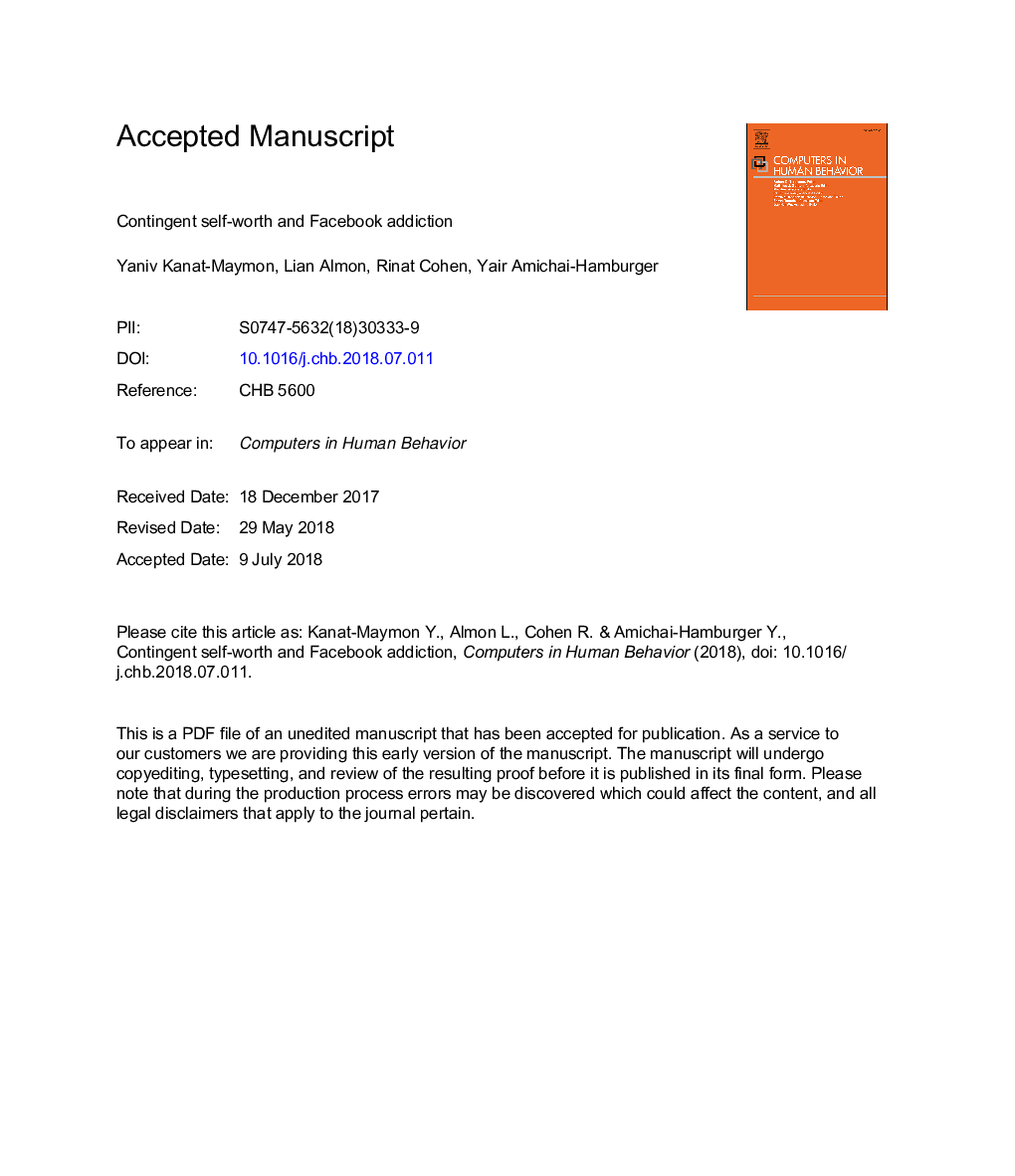| Article ID | Journal | Published Year | Pages | File Type |
|---|---|---|---|---|
| 6835709 | Computers in Human Behavior | 2018 | 44 Pages |
Abstract
With the growing popularity of Facebook for social interaction and information exchange, researchers are starting to examine its “dark side”, notably Facebook addiction. Previous research finds low self-esteem is a key risk factor of maladaptive Facebook use. Building on this finding, in two related studies we examined whether contingencies of self-worth on social acceptance can help explain Facebook addiction. Study 1 involved 337 participants taking an online survey. Results indicated that contingent self-worth (CSW) in the domain of others' approval was positively linked with Facebook addiction and excessive usage time. These results were unique to CSW over and above global self-esteem and the big-5 personality traits. Study 2 employed a daily diary methodology in which 80 participants provided daily reports on their self-esteem and Facebook experience for 21 consecutive days. Multilevel modeling indicated that daily fluctuations in social acceptance CSW positively predicted day-to-day changes in Facebook addiction. Again, this finding was unique to CSW over and above daily changes in global self-esteem. Together, the results of these two studies provide initial support for the key role of CSW in the emergence and sustainment of Facebook addiction. The paper concludes by discussing the theoretical implications of the two studies' findings.
Related Topics
Physical Sciences and Engineering
Computer Science
Computer Science Applications
Authors
Yaniv Kanat-Maymon, Lian Almog, Rinat Cohen, Yair Amichai-Hamburger,
